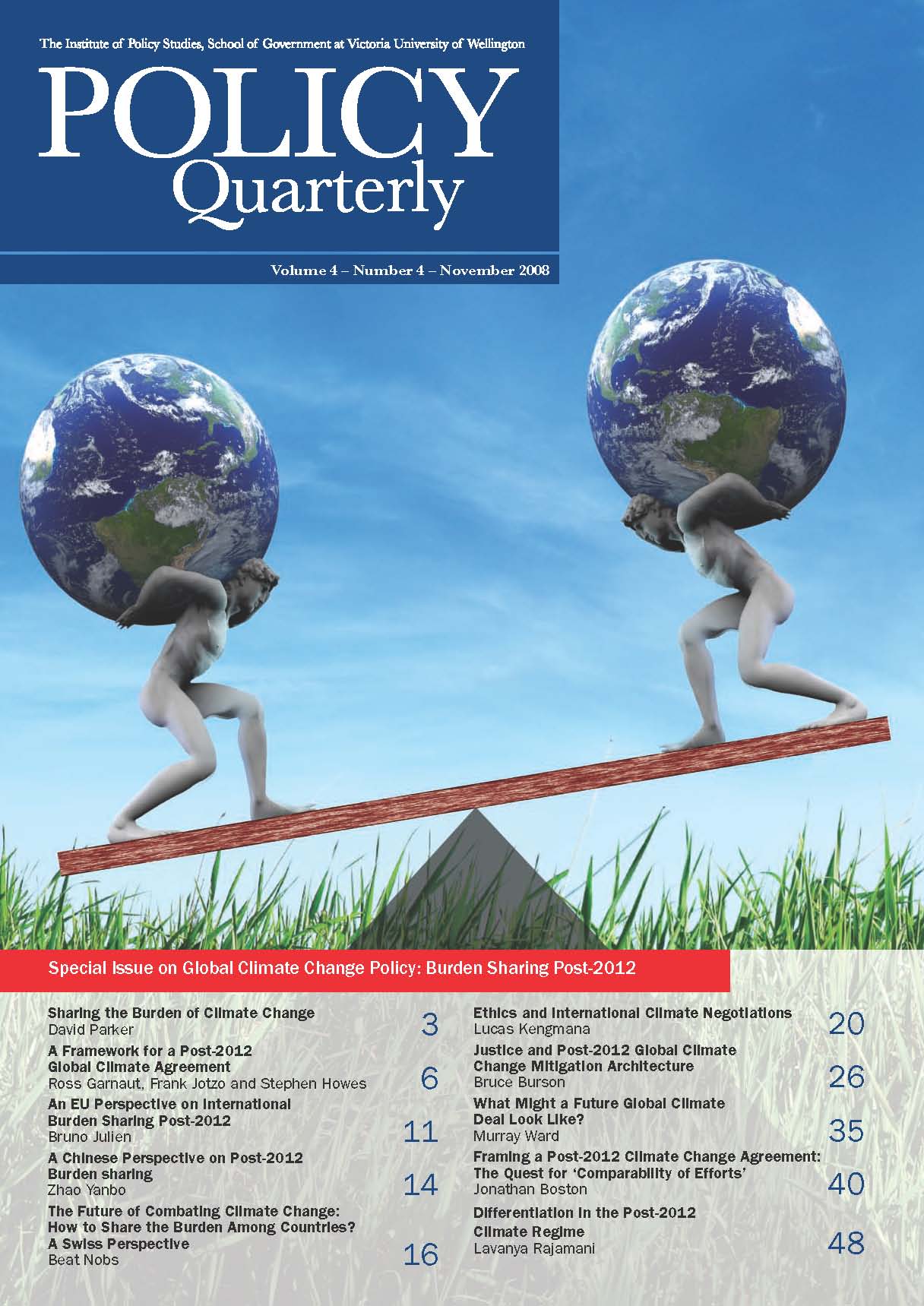Justice and post-2012 global climate change mitigation architecture
DOI:
https://doi.org/10.26686/pq.v4i4.4278Keywords:
Intergovernmental Panel on Climate Change (IPCC), United Nations Framework Convention on Climate Change (UNFCCC), inter-generational, Berlin MandateAbstract
This article considers how justice relates to and informs the structure of international climate change mitigation2 architectures under which burdens are assumed by individual states. The argument can be made that the structure of the current global architecture has, to a substantial extent, been determined in the domain of realpolitik, not justice. In the domain of realpolitik, states seek to maximise their national self-interest based on practical rather than ethical considerations. The more powerful the state, the more able it is to stay outside global regulatory systems if its perception of its national self-interest deems this appropriate. But if this is so, are considerations of justice relevant to the shape of future global climate change mitigation regimes? This article argues that they are.
Downloads
Downloads
Published
Issue
Section
License
Permission: In the interest of promoting debate and wider dissemination, the IGPS encourages use of all or part of the articles appearing in PQ, where there is no element of commercial gain. Appropriate acknowledgement of both author and source should be made in all cases. Please direct requests for permission to reprint articles from this publication to Policy-Quarterly@vuw.ac.nz.



